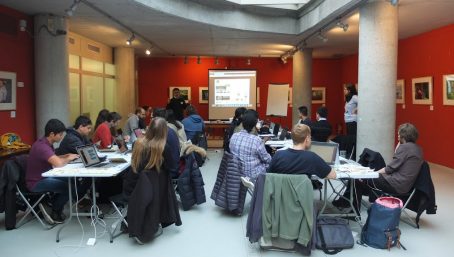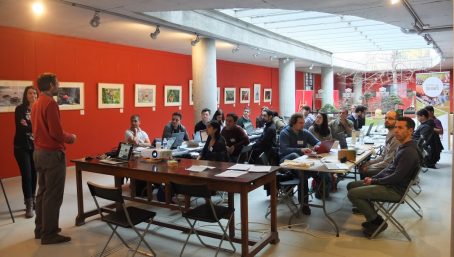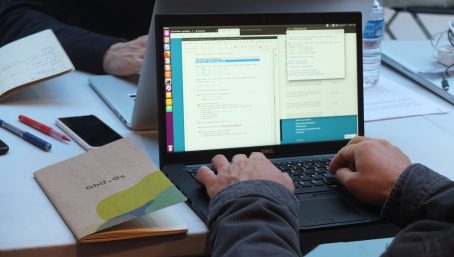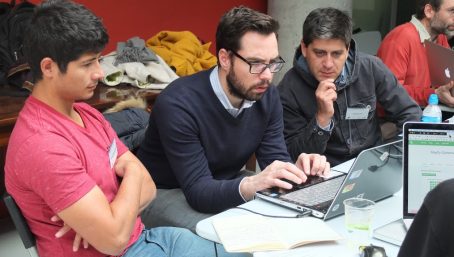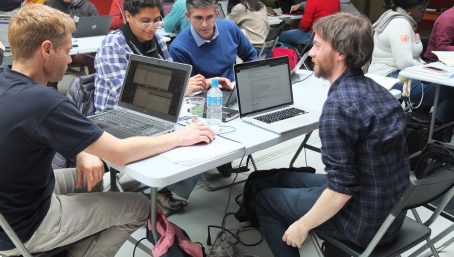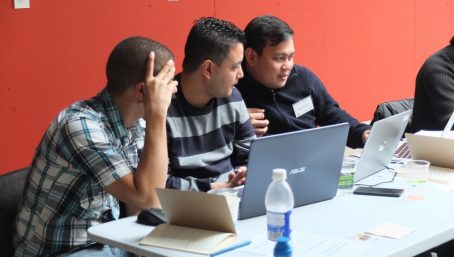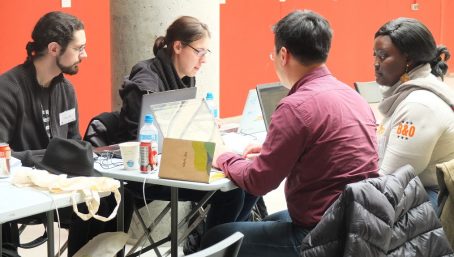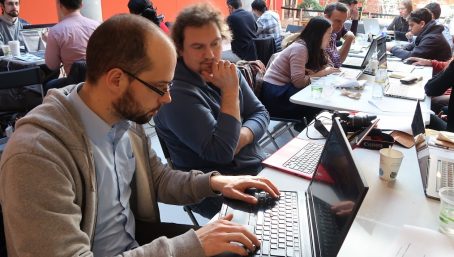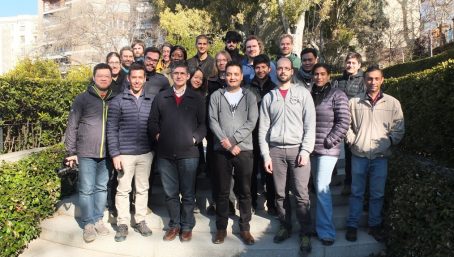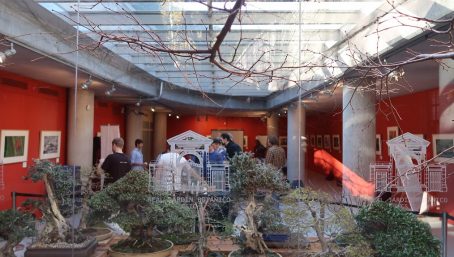International Living Atlases Workshop
Description
The Living Atlases Workshop, funded by GBIF as part of the CESP programme, is intended to bring together developers who are using Living Atlases tools, and developers who have an interest in using these tools for new projects. The aim is to share knowledge and experiences of this toolset and strengthen the burgeoning Atlas open source community. The workshop will cover the core set of components in use by the Atlases, and will include information on updates and new features. There will also be some introductory sessions for developers exploring the use of the Atlas tools. In addition, there will be some discussion on how to collaborate and contribute to future developments in the best way.
Technical information
The workshop will consist of presentations and practical sessions. In the practical sessions, a virtual machine hosted by a cloud provider will be used. It is recommended to bring a laptop with the following installed:
- Linux or Mac OSX are recommended. If you bring a Windows machine, please have VirtualBox installed.
- Ansible 2 installed.
- Java 8 installed.
- Grails installed (we recommend using http://sdkman.io/).
- Oracle’s VirtualBox & Vagrant installed.
- A text editor.
- An IDE installed. We recommend using Intellij but Eclipse will be ok too.
We will be working closely with Ansible playbooks in this GitHub project. Moreover, for additional background reading, the following technologies will be worth reading about (if you are unfamiliar with them already): Ansible, Grails, SOLR, and Bootstrap. If you don’t have it already please create a GitHub account for yourself.
Other useful information
Map with places of interest https://goo.gl/shkRC3
Agenda
Monday 19th Feb (morning) - INTRODUCTION & INITIAL PRESENTATIONS
- 9:00 Welcome.
- 9:15 Brief introductions from participants - 1 or 2 slides.
- 10:00 Introduction to the Atlas of Living Australia.
- 10:30 Coffee.
- 11:00 About the Living Atlases community.
- 11:30 Architecture overview: Running a Living Atlas for your node of biodiversity.
- 12:00 Ansible overview.
- 12:30 The Demo Architecture.
- 13:00 Lunch.
Monday 19th Feb (afternoon) - DEMO INSTALLATIONS
- 14:00 Practical - Amazon EC2 VMs for training - see exercises below.
- 15:30 Coffee.
- 16:00 Practical - resumed.
- 17:00 Finish.
Tuesday 20th Feb (morning) - NEW FUNCTIONALITY FROM THE ALA & LIVING ATLASES
- 9:00 Data hubs - supporting co-development between GBIF nodes.
- 9:30 DOIs for downloads.
- 10:00 Publishing to GBIF through the Registry (collectory).
- 10:30 Coffee.
- 11:00 Other new developments - participants can optionally talk about a project.
- Citizen science tools.
- Estonia - talk about molecular data.
- Taxonomic profile editing.
- The new spatial portal.
- Other upgrades of existing components (biocache-hub, collectory).
- ALA planned development work.
- 13:00 Lunch.
Tuesday 20th Feb (afternoon) - USING YOUR OWN TAXONOMY WITH THE ATLAS
- 14:00 Name indexes & DwCA structure for taxonomy.
- 14:30 Practical - Using GBIF backbone or Catalogue of Life.
- 15:00 Using your own taxonomy.
- 17:00 Finish.
Wednesday 21st Feb (morning) - CUSTOMISATION & CONTRIBUTING BACK TO SOURCE CODE
- 9:00 Github overview.
- 10:00 Getting your code changes into Github.
- 10:30 Coffee.
- 11:00 Documentation.
- 11:15 Grails introduction.
- 12:00 Exercises.
- 13:00 Lunch.
Wednesday 21st Feb (afternoon) - CUSTOMISING COMPONENTS
- 14:00 Practical - Exercises.
- 15:30 Coffee.
- 16:00 Exercises.
- 17:00 Finish.
- 20:30 “Official” dinner
Thursday 22nd Feb (morning) - SPATIAL COMPONENTS
- 9:00 ALA4R.
- 9:30 Spatial component architecture.
- 10:00 Layers explained.
- 10:30 Coffee.
- 11:00 Using the spatial portal EC2 image.
- 13:00 Lunch.
Thursday 22nd Feb (afternoon) - RUNNING SPATIAL PORTAL
- 14:00 Exercises.
- 15:30 Coffee.
- 16:00 Exercises.
- 17:00 Finish.
- 17:30 Free guided visit to Prado Museum (optional)
Friday 23rd Feb (morning) - SPECIES PAGES AND SPECIES LISTS
- 9:00 BIE architecture - species pages and search indexes.
- 10:00 Lists - traits, conservation lists.
- 10:30 Coffee.
- 11:00 Exercises.
- 13:00 Lunch.
Friday 23rd Feb (afternoon) - FUTURO DE LA COMUNIDAD ALA
- 14:00 Discussion: How to maintain ALA community in the future funding calls, next workshops, more countries/organizations that want to use ALA, new developments).
- 15:00 Action points and evaluation.
- 15:30 Coffee.
- 16:00 Discussion (continuation).
- 17:00 Finish.
*For the practical sessions, the attendees will be organized into groups of 2 or 3 developers to work together with a virtual machine. We’ll provide the details of how to access this machine at the workshop.
#ALAWorkshopMadrid
See more in TwitterAttached Documents
Brief introductions from participantsList of participants
- Nº Name Organization
- 1 Abner Andrés Galvez Contreras GBIF Chile. Ministerio del Medio Ambiente de Chile
- 2 Allan Zirk GBIF Estonia
- 3 Brandito M. Quijano Jr. University of the Philippines Diliman
- 4 Chihjen Ko Taiwan Biodiversity Information Facility
- 5 David Martin Atlas of Living Australia
- 6 Dimitri Alexander Ouboter National Zoological Collection of Suriname. Anton de Kom University of Suriname
- 7 Fabien Cavière GBIF France
- 8 Jaime Nahuel Ramírez Lorca GBIF Argentina
- 9 Jérémy Goimard Canadensys
- 10 Jörg Holetschek GBIF Germany
- 11 Kourouma Koura GBIF Benin
- 12 Manash Shah GBIF Sweden
- 13 Manuel Vargas Instituto Nacional de Biodiversidad - Costa Rica
- 14 Marie-Elise Lecoq GBIF France
- 15 Matthew Blissett GBIF Secretariat
- 16 Maxim Shashkov Institute of Mathematical Problems of Biology, Russia
- 17 Nick dos Remedios Atlas of Living Australia
- 18 Reuben Roberts National Biodiversity Network (NBN). United Kingdom
- 19 Riza Batista-Navarro University of Manchester / Philippines
- 20 Rui Figueira GBIF Portugal
- 21 Santiago Martínez de la Riva GBIF Spain
- 22 Sharon Grant The Field Museum of Natural History - US
- 23 Sophie Radcliff National Biodiversity Network (NBN). United Kingdom
- 24 Xiaoqian Zhao National Specimen Information Infrastructure of China (NSII) - China
